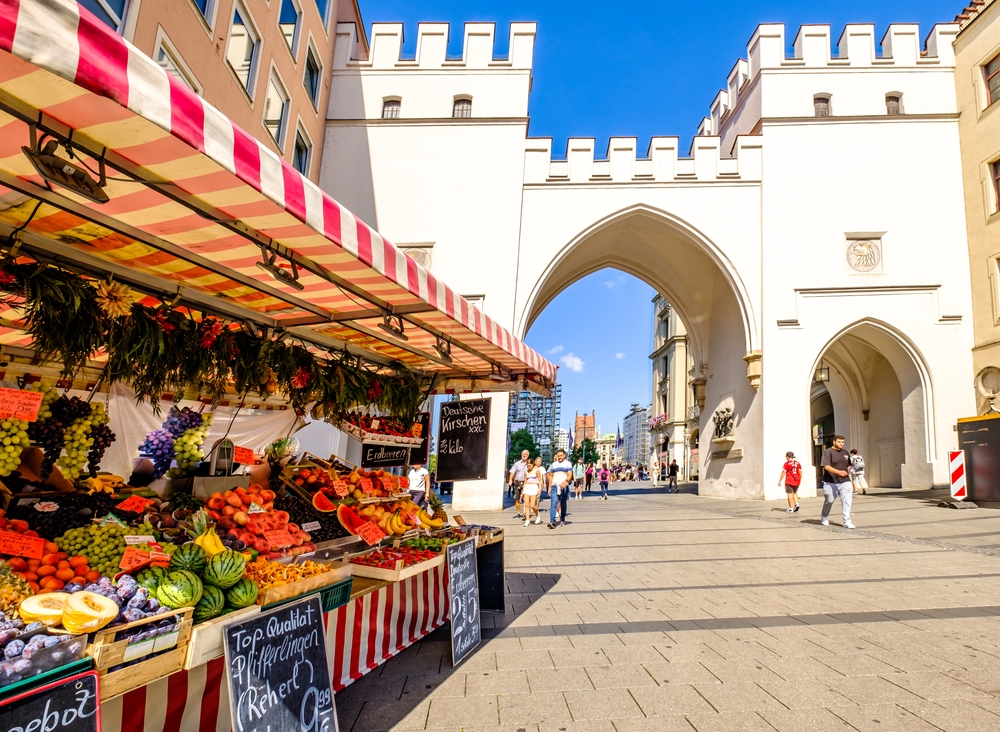A rising tide of migrant youth gangs is driving long-established chestnut and fruit stall operators in Munich to the brink. The traders, especially those in the iconic Karlsplatz in the Bavarian city’s old town, feel increasingly unsafe, with many abandoning their stands as crime, vandalism, and harassment become daily occurrences.
Lisi R., a third-generation chestnut seller, says fear now overshadows her family’s business. “We are desperate. Youth gangs – some of them are almost children, probably too young to be held criminally responsible – are terrorizing the area,” she told Munich-based Tageszeitung.
Like many others, she is afraid for her livelihood and her son, who also works at their stall. Lisi is part of the newly formed Association of Munich Stand Operators (VMS), a group of 150 vendors fighting back against the social degradation threatening their businesses.
The situation is dire, with aggressive beggars, exhibitionists, and drug users adding to the tense atmosphere. “People hardly dare to take out their wallets anymore. The gangs are bad for business,” Lisi added.
Sabine Powik, another vendor, shared her distress: “You get stomach pains just thinking about coming to work. A customer once had to call the police because a drunk was harassing me.
“Something has happened to us several times. For example, my husband just wanted to hitch the trailer to the car when six young boys came and insulted him,” she added.
The rising violence and intimidation have forced many women to abandon their stalls. “Women don’t work here anymore,” said one chestnut seller. “Even I, someone trained in self-defense, often feel uncomfortable. This is the heart of Munich, and it’s sad that we no longer feel safe.”
The man, who has Turkish roots, explained how he was able to diffuse situations on occasion by talking to the aggressors in their native tongue.
“I recently had an argument with 30 people, but I speak their language and was therefore able to have a de-escalating effect on them,” he added.
He noted that police presence is sporadic, with officers often citing a lack of staff for regular patrols.
Daniel N., a fruit stand operator, has chosen to avoid Karlsplatz entirely. “I would rather forgo the money than endanger my health or that of my employees,” he said, opting to sell in safer locations within the pedestrian zone. “Something always has to happen before there’s any action.”
Established businesses in the area are also ramping up security. Hugendubel bookstore has provided self-protection training to its employees, while McDonald’s has long had security guards and surveillance cameras in place. “We’ve seen a significant change in the situation at Stachus,” a Hugendubel spokesperson said, confirming increased security measures. “The safety of our staff is a priority.”
The deteriorating situation was underscored by a recent knife incident involving a youth gang at Stachus. A 40-year-old man was threatened with a knife, prompting a large police response, though the perpetrator escaped. Fortunately, the man was unharmed, but the incident further highlights the escalating dangers.
VMS’s office manager, Susanne Stein, emphasized the toll this is taking on the city’s market culture. “Fewer and fewer stand operators want to continue. An old Munich tradition is at risk,” she warned.






